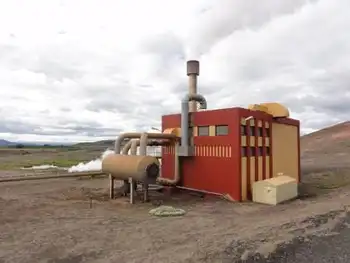Former legislator eyed for PUC
By Lancaster Sunday News
Electrical Testing & Commissioning of Power Systems
Our customized live online or in‑person group training can be delivered to your staff at your location.

- Live Online
- 12 hours Instructor-led
- Group Training Available
If Armstrong is confirmed by the state Senate - where his father is part of the Republican majority leadership - the former legislator would serve a five-year term as a PUC commissioner and earn $124,000 a year, or about $50,000 more than he earned as a legislator.
When contacted about his possible nomination, Armstrong said "It's an honor to be considered, and right now there are several opportunities I'm looking into."
He declined to comment further but forwarded a January 19 letter written on his behalf to Gov. Ed Rendell by a former Colorado PUC commissioner.
"Mr. Armstrong's credentials, integrity and commitment to a sound energy and economic future are well established and make him an outstanding choice," wrote Brent Alderfer, executive vice president of Iberdrola Renewable Energies USA.
Sources in Harrisburg who requested anonymity said some Republicans in the state Capitol are concerned Armstrong's possible nomination by Democratic Gov. Ed Rendell may prompt allegations of nepotism.
The former legislator's father is state Sen. Gibson E. Armstrong, the Republican Appropriations Committee chairman, and both he and Rendell wield considerable influence over state spending.
The five-member PUC board approves utility rate increases, rules on residential complaints about utilities and implements state energy policies, such as alternative energy initiatives.
Gib Armstrong would fill the seat formerly held by Bill Shane, whose term ended in April. His appointment would have to be approved by the state Senate.
When asked if she had a comment about Armstrong's potential nomination, Rendell spokeswoman Kate Philips said, "Nope."
Rendell has been criticized for his appointment in December of former state Sen. Joe Conti to the new post of chief executive officer of the state Liquor Control Board.
Conti's appointment to the $150,000-a-year job prompted Liquor Control Board Chairman Jonathan H. Newman to resign, claiming the selection process was too secretive.
Like Conti, Armstrong is a former Republican legislator who had a role in the controversial and now-repealed legislative pay raise of 2005.
Armstrong voted against the raise but accepted the increase through a controversial measure called "unvouchered expenses." He later returned the money to the state.
Armstrong represented the 100th District, which covers most of southern Lancaster County, from 2002 until 2006. He was defeated in the May 2006 primary by Bryan Cutler, who ran unopposed in the November general election.
During his tenure, Armstrong supported alternative energy proposals and served as chairman of the state House Alternative Energy Caucus. He also was selected by state Department of Environmental Protection Secretary Kathleen McGinty to serve as secretary of the Pennsylvania Energy Development Authority.
Sources said McGinty is backing Armstrong's nomination to the PUC because the two have similar views on promoting development of alternative energy sources.
Jim Seif, former DEP Secretary during Gov. Tom Ridge's administration, said in an e-mail that he supports Armstrong's nomination.
"I have worked with Gib on energy policy over the last several years and find him hard-working, conscientious and perceptive," Seif wrote.
"These qualities will add strength to a commission that will have enormous energy-related challenges to face in the next several years."











